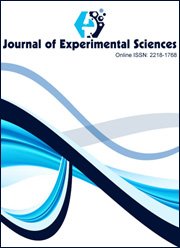Production and Optimisation of Tetracycline by Various Strains of Streptomyces under Solid State Fermentation using Pineapple Peel as a Novel Substrate
Abstract
Pineapple peel is the principal solid waste product of the juice processing industry. The disposal of the fresh peels is becoming a major problem to many food processing industries. Dry pineapple peels are rich in biodegradable organic material and suspended solids; therefore, this waste was used as a novel substrate in present solid substrate fermentation. The effect of medium ingredients such as carbon, inorganic and organic nitrogen sources, inorganic salts on tetracycline production by various strains of Streptomyces [S. aureofaciens NCIM (2417, 2614, 2615), S. rimosus  NCIM 2213 and S. viridifaciens NCIM 2506] in solid-state fermentations (SSF) was observed. The 1.0-fold lower antibiotic yield than the control in the presence of glucose and sucrose in SSF at 10% w/w was observed , whereas peanut meal and ammonium sulphate was found to be a more favorable organic and inorganic nitrogen source than the control in SSF at 10% and 1% w/w. Calcium carbonate (CaCO3) as inorganic salt favored 0.5% higher antibiotic yield than the control at 1% w/w. Various crucial parameters such as initial moisture content, incubation temperature, initial pH, substrate particle size and inoculum size were derived; 65% moisture level, 35oC temperature, pH 5-0-6.5, 6 x 4 mm particle size and (1.0 x 108 spores/ ml) inoculum size was found to be suited for maximal tetracycline production. The maximum tetracycline production was observed following 3–7 days of fermentation cycle.




 .
.